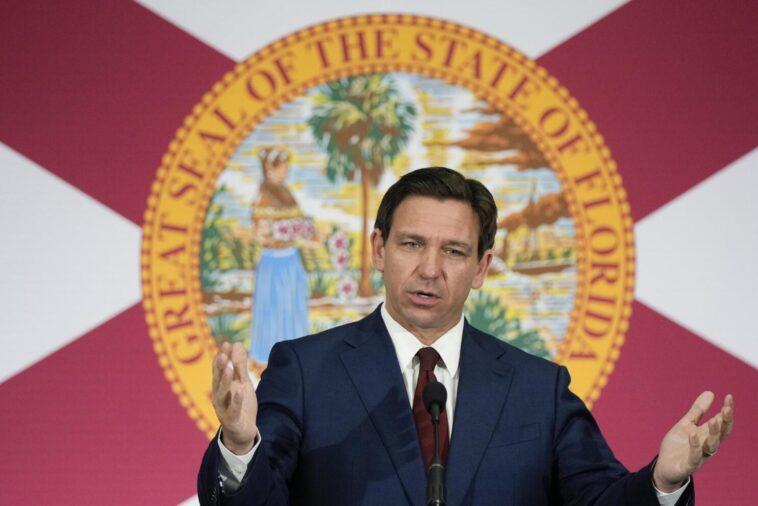Florida Governor Ron DeSantis has officially signed a wide-reaching immigration reform bill into law, marking one of the most stringent state-led immigration policies in the nation. The legislation introduces a state board for immigration enforcement and enforces stricter penalties on undocumented immigrants, signaling a firm stance on immigration policy within the state.
A Landmark in State Immigration Policy
During a press conference, Governor DeSantis highlighted the significance of the bill, calling it “the strongest legislation to combat illegal immigration of any state in the entire country.” This move follows extensive negotiations between DeSantis, House Speaker Daniel Perez, and Senate President Ben Albritton, who ultimately reached a compromise after initial disagreements over the details of the legislation.
Key Provisions of the New Law
The newly enacted legislation implements a variety of measures aimed at curbing illegal immigration, including:
- $300 Million for Immigration Enforcement: Nearly $300 million is being allocated to bolster immigration enforcement, including the hiring of over 50 new officers, additional training grants for local agencies, bonuses for officers assisting in federal operations, and funding for detention facilities.
- Creation of a State Immigration Enforcement Board: This board will consist of the governor, agriculture commissioner, attorney general, and state chief financial officer, overseeing immigration-related policies and enforcement within the state.
- Stricter Criminal Penalties: The bill mandates the death penalty for undocumented immigrants who commit capital offenses, such as first-degree murder or child rape. This provision has been met with significant debate, with opponents arguing its constitutionality based on previous Supreme Court rulings.
- End of In-State Tuition for Dreamers: A major provision of the bill includes the repeal of the in-state tuition waiver for undocumented students, a policy that has been in place for years. This move has faced bipartisan criticism, with opponents labeling it as a setback for immigrant families who have long called Florida home.
- Enhanced Criminal Penalties for Immigration Violations: The legislation increases the penalties for crimes committed by undocumented immigrants and establishes a new crime for re-entering the state after being in the U.S. illegally.
Florida’s Immigration History and the Changing Landscape
Florida has historically been a destination for immigrants, providing opportunities and shelter for those seeking a better life. From the waves of Cuban refugees fleeing communism to communities built by Haitian and Central American immigrants, the state has long been recognized as a melting pot of diverse cultures. However, this latest legislation signals a significant shift, reinforcing stricter controls that could reshape Florida’s immigration landscape.
Debate Over the Legislation
While Governor DeSantis and Republican lawmakers see the bill as a necessary step toward addressing illegal immigration, Democratic lawmakers and civil rights advocates have raised concerns. Critics argue that the death penalty provision for undocumented individuals who commit capital offenses is unconstitutional and could face legal challenges. Others express concern over the impact of eliminating in-state tuition for Dreamers, a policy that previously helped many immigrant students access higher education.
Despite the controversy, DeSantis remains confident that Florida is setting a precedent for other states to follow. “We are ahead of the curve on ending the illegal immigration crisis,” he stated, emphasizing that these measures are symbolic and will lead to tangible changes in state immigration policies.
Looking Ahead
With the legislation now signed into law, Florida’s approach to immigration enforcement will be closely watched. The long-term effects on immigrant communities, law enforcement operations, and legal challenges remain to be seen. As the state implements these new policies, the debate over immigration in Florida continues to evolve, reflecting broader national conversations on the issue.
Florida’s new immigration law represents a defining moment in the state’s history. Whether it serves as a model for the nation or becomes a point of contention in legal and political battles remains to be determined.







Comments